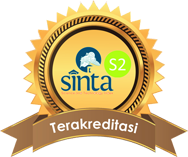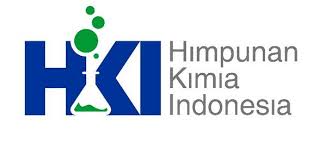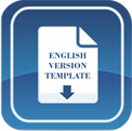Exploration of Student's Critical Thinking Skills in the Context of Chemistry Based on the Nature of Science
DOI:
https://doi.org/10.15575/jtk.v8i1.23358Keywords:
chemistry pre-service teacher, critical thinking, nature of scienceAbstract
References
Allamnakhrah, A. (2013). Learning Critical Thinking in Saudi Arabia: Student Perceptions of Secondary Pre-Service Teacher Education Programs. Journal of Education and Learning, 2(1), 197–210. https://doi.org/10.5539/jel.v2n1p197
Annisa, M., & Listiani. (2017). Pemahaman Aspek-Aspek dalam Hakikat Sains (Nature of Science) oleh Guru Sekolah Dasar di Wilayah 4P (Pedalaman, Perbatasan, Perkotaan, dan Pesisir). Jurnal Ilmiah Sekolah Dasar, 1(4), 241–246. https://doi.org/10.23887/jisd.v1i4.12709
Bett, N. N., Piccolo, C., Roberson, N. D., Charbonneau, A. J., & Addison, C. J. (2023). Students’ Views on the Nature of Science in an Interdisciplinary First-Year Science Program: Content Analysis of a Weekly Reflection Activity. Teaching and Learning Inquiry, 11, 1–19. https://doi.org/10.20343/teachlearninqu.11.10
Boholano, H. B. (2017). Smart Social Networking: 21st Century Teaching and Learning Skills. Research in Pedagogy, 7(1), 21–29. https://doi.org/10.17810/2015.45
Cavagnetto, A. R. (2010). Argument to Foster Scientific Literacy: A Review of Argument Interventions In K–12 Science Contexts. Review of Educational Research, 80(3), 336-371. https://doi.org/10.3102/0034654310376953
Chen, S. (2006). Development of an Instrument to Assess Views on Nature of Science and Attitudes Toward Teaching Science. Science Education, 90(5), 803–819. https://doi.org/10.1002/sce.20147
Cohen, L., Manion, L., & Morrison, K. (2018). Research Methods in Education 8th Edition. New York: Routledge Taylor & Francis Group.
Desouza, J. M. S. (2017). Conceptual Play and Science Inquiry: Using The 5E Instructional Model. Pedagogies: An International Journal, 12(4), 340–353. https://doi.org/10.1080/1554480X.2017.1373651
Facione, P. A. (2015). Critical Thinking: What It Is and Why It Counts. Insight Assesment 5(1), 1–30. Retrieved from https://www.academia.edu/download/71022740/what_why98.pdf
Forawi, S. A. (2016). Standard-Based Science Education and Critical Thinking. Thinking Skills and Creativity, 20, 52–62. https://doi.org/10.1016/j.tsc.2016.02.005
Hutama, P. B. P., Muslim, Suseno, H., & Wahyono, I. B. (2013). Distribusi Radionuklida 137Cs di Perairan Selat Panaitan – Selatan Garut. Journal of Oceanography, 2(3), 221–227. Retrieved from https://ejournal3.undip.ac.id/index.php/joce/article/view/4562
Imaduddin, M., & Haryani, S. (2019). Lembar Kerja Directed Activities Related to Texts (DARTS) Bermuatan Multipel Level Representasi Untuk Meningkatkan Kemampuan Berpikir Kritis Calon Guru Kimia. Jurnal Inovasi Pendidikan Kimia, 13(1), 2254–2267. Retrieved from https://journal.unnes.ac.id/nju/index.php/JIPK/article/view/16436
Imran, M. E., & Widodo, A. (2018). Profil Pemahaman Nature of Science (NOS) di Sekolah Dasar. Jurnal Kajian Pendidikan Dasar, 3(2), 504–557. https://doi.org/10.26618/jkpd.v3i2.1420
Kartika, N. H., Saputro, S., & Mulyani, S. (2019). Chemistry Module Based on Guided Discovery to Improve Critical Thinking Ability: Development and Trial Results. Journal of Physics, 4, 1742–6596. https://doi.org/10.1088/1742-6596/1157/4/042016
Kurniawati, I. D. (2018). Penerapan Pembelajaran Peer Instruction Berbantuan Media Pembelajaran Interaktif untuk Meningkatkan Kemampuan Berpikir Kritis. Seminar Nasional Teknologi Informasi dan Komunikasi: Literasi Digital Pada Era Revolusi Industri 4.0, 39–43. Retrieved from http://prosiding.unipma.ac.id/index.php/senatik/article/view/873
Lampert, Y. (2020). Teaching the Nature of Science from a Philosophical Perspective. Science and Education, 29(5), 1417–1439. https://doi.org/10.1007/s11191-020-00149-z
Lederman, N. G., Abd-El-Khalick, F., Bell, R. L., & Schwartz, R. S. (2002). Views of Nature of Science Questionnaire: Toward Valid and Meaningful Assessment of Learners’ Conceptions of Nature of Science. Journal of Research in Science Teaching, 39(6), 497–521. https://doi.org/10.1002/tea.10034
Listiani, & Kusuma, A. E. (2017). View of Nature of Science (VNOS) Form B: Sebuah Instrumen untuk Mengetahui Pemahaman Konsep Hakikat Sains Calon Guru di Universitas Borneo Tarakan. Jurnal Pendidikan Biologi Indoneisa, 3(1), 45–54. Retrieved from https://ejournal.umm.ac.id/index.php/jpbi/article/view/3974
Monroe, M. C., Oxarart, A., & Plate, R. R. (2013). A Role for Environmental Education in Climate Change for Secondary Science Educators. Applied Environmental Education and Communication, 12(1), 4–18. https://doi.org/10.1080/1533015X.2013.795827
Nugrahaeni, A., Redhana, I. W., & Kartawan, I. M. A. (2017). Penerapan Model Pembelajaran Discovery Learning untuk Meningkatkan Kemampuan Berpikir Kritis dan Hasil Belajar Kimia. Jurnal Pendidikan Kimia Indonesia, 1(1), 23–29. https://doi.org/10.23887/jpk.v1i1.12808
Nurfazri, M. (2022). Teaching Critical Thinking to Foster EFL Students' Ability to Distinguish from Factual and Fake News: Process and Result. Doctoral dissertation. UIN Sunan Gunung Djati Bandung.
Oliveira, C. F., & Barufaldi, J. P. (2009). Aliens are Us. An Innovative Course in Astrobiology. International Journal of Astrobiology, 8(1), 51–61. https://doi.org/10.1017/S1473550408004370
Rowe, M. P., Marcus Gillespie, B., Harris, K. R., Koether, S. D., Shannon, L. J. Y., & Rose, L. A. (2015). Redesigning A General Education Science Course to Promote Critical Thinking. CBE-Life Sciences Education, 14(3), 1–12. https://doi.org/10.1187/cbe.15-02-0032
Sengul, O. (2019). Linking Scientific Literacy, Scientific Argumentation, and Democratic Citizenship. Universal Journal of Educational Research, 7(4), 1090–1098. https://doi.org/10.13189/ujer.2019.070421
Sutamrin & Khadijah. (2021). Analisis Kemampuan Berpikir Kritis dalam Project Based Learning Aljabar Elementer. Jurnal Ilmiah Pendidikan Matematika, 4(1), 28–41. https://doi.org/10.46918/equals.v4i1.892
Tiruneh, D. T., Verburgh, A., & Elen, J. (2014). Effectiveness of Critical Thinking Instruction in Higher Education: A Systematic Review of Intervention Studies. Journal Higher Education Studies 4(1). https://doi.org/10.5539/hes.v4n1p1
Verhey, S. D. (2006). Erratum: The Effect of Engaging Prior Learning on Student Attitudes Toward Creationism and Evolution. BioScience, 56(4), 285. https://doi.org/10.1641/0006-3568(2006)56[285b:C]2.0.CO;2
Welter, V. D. E., Emmerichs-Knapp, L., & Krell, M. (2023). Are We on the Way to Successfully Educating Future Citizens? —A Spotlight on Critical Thinking Skills and Beliefs about the Nature of Science among Pre-Service Biology Teachers in Germany. Behavioral Sciences, 13(3), 1–21. https://doi.org/10.3390/bs13030279
Widodo, S., Santia, I., & Jatmiko. (2019). Analisis Kemampuan Berpikir Kritis Mahasiswa Pendidikan Matematika pada Pemecahan Masalah Analisis Real. Ethnomathematics and Learning Math, 4(2), 279. Retrieved from https://ejournal.unib.ac.id/index.php/jpmr/article/view/9747
Wijaya, E. Y., Sudjimat, A. D., & Nyoto, A. (2016). Transformasi Pendidikan Abad 21 sebagai Tuntutan Pengembangan Sumber Daya Manusia di Era Global. Prosiding Seminar Nasional Pendidikan Matematika 2016 - Universitas Kanjuruhan Malang, 1(26), 263–278. Retrieved from https://core.ac.uk/download/pdf/297841821.pdf
Wijaya, P. A., & Fitriani. (2021). Kemampuan Berpikir Kritis Mahasiswa di Program Studi Pendidikan Akuntansi. Perspektif Pendidikan dan Keguruan, 12(1), 52–57. https://doi.org/10.25299/perspektif.2021.vol12(1).6654
Yacoubian, H. A. (2020). Is Science A Universal or A Culture-Specific Endeavor? The Benefits of Having Secondary Students Critically Explore This Question. Cultural Studies of Science Education, 15(4), 1097–1119. https://doi.org/10.1007/s11422-020-09975-7
Yulita, I., Adriani, N., Fatoni, A., Hermawan, D., & Mudzakir, A. (2019). Identifikasi Pandangan Nature of Science (VNOS) Calon Guru Kimia. Jurnal Zarah, 7(2), 62–73. https://doi.org/10.31629/zarah.v7i2.1550
Downloads
Additional Files
Published
How to Cite
Issue
Section
Citation Check
License
Authors who publish with this journal agree to the following terms:
- Authors retain copyright and grant the journal right of first publication with the work simultaneously licensed under a Creative Commons Attribution-ShareAlike that allows others to share the work with an acknowledgement of the work's authorship and initial publication in this journal.
- Authors are able to enter into separate, additional contractual arrangements for the non-exclusive distribution of the journal's published version of the work (e.g., post it to an institutional repository or publish it in a book), with an acknowledgement of its initial publication in this journal.
- Authors are permitted and encouraged to post their work online (e.g., in institutional repositories or on their website) prior to and during the submission process, as it can lead to productive exchanges, as well as earlier and greater citation of published work (See The Effect of Open Access).









